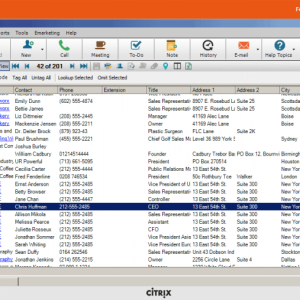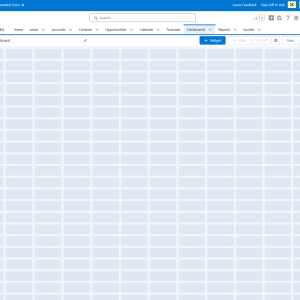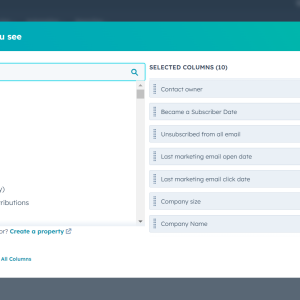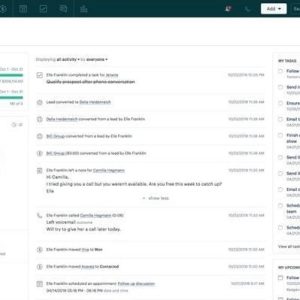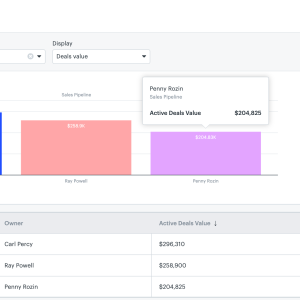As we approach 2023, the demand for powerful marketing automation and customer relationship management (CRM) tools continues to grow. HubSpot has long been a popular choice for businesses looking to streamline their marketing and sales processes. However, with the ever-changing landscape of digital marketing, it is essential to explore alternative options that may better suit the unique needs of your business. In this article, we will delve into the best HubSpot alternatives in 2023, providing a detailed feature and pricing comparison to help you make an informed decision. Whether you are a small startup or an established enterprise, finding the right CRM and marketing automation software can significantly impact your business’s success.
If you’re looking for HubSpot alternatives, our research found Freshsales is the best option out there. Freshsales is an affordable one-size-fits-all CRM platform, and unlike HubSpot it offers marketing and sales tools in-house, preventing the need for you to source them separately.
You are viewing: Best HubSpot Alternatives in 2023 | Feature & Pricing Comparison
Freshsales also boasts useful time tracking, ticketing features, and live chat options on its cheapest paid tier. Plus, Freshsales has a promising free plan for three users or fewer, though it has fewer features than HubSpot’s free tier.
monday.com is another great alternative for small businesses. The platform gives you unlimited users and 5GB of storage for just $10 per user, per month, and it’s the most user-friendly CRM software we reviewed.
In this guide, we’ll cover all the best HubSpot CRM alternatives. Here are our top three:
Freshsales – Best HubSpot alternative overall
monday.com CRM– Best HubSpot alternative for small businesses
Pipedrive Sell– Great HubSpot alternative for sales
These are the providers we recommend based on our research. Clicking on the links will take you to the provider’s website.
HubSpot Alternatives: At a Glance
As businesses look for smarter ways to manage customer relations, the use of CRM tools is projected to increase 12% every year from now until 2028. Use the links below to jump to our full reviews.
The four best HubSpot alternatives are:
- Freshsales – Best HubSpot alternative overall, recommended for its many features, low price, and high overall value.
- monday.com CRM – Best HubSpot alternative for small businesses, recommended for its ease of use and price.
- Pipedrive Sell – Great HubSpot alternative for sales, recommended for its useful lead generation features and integrations.
- Salesforce Service Cloud – Best HubSpot alternative for customer service, recommended for its complex features.
- Zendesk Sell – Best HubSpot alternative for beginners, recommended for its overall features and great team management tools.
Freshsales CRM features and overview
Freshsales is the best HubSpot alternative overall, because it offers a competitive feature set for both sales and marketing, while remaining more affordable.
HubSpot scores the same as Freshsales for customer support features (both 4.2/5) and overall features (4/5), and although Freshsales lags behind on scalability (3.9/5 vs HubSpot’s 4.3/5), our analysis showed it’s better value for money (4.6/5) than HubSpot (3.7/5).
In our small-business testing, Freshsales scored 4.7/5 for its Growth suite functionality, marking was the joint highest CRM system score achieved along with Zoho CRM. Our research team also listed it as the second best sales-focused CRM on the market. It’s incredibly easy to use, especially for a program with so many features.
One unique offering from Freshsales is its AI-powered Contact Scoring tool “Freddy,” which gives your contacts an automated lead score based on the data you’ve collected. For example, we found in our testing that mock leads who behave similarly to existing customers are awarded a good score, to indicate their strong potential to join your customer base. Freshsales is also home to a range of data visualization tools for displaying sales data.
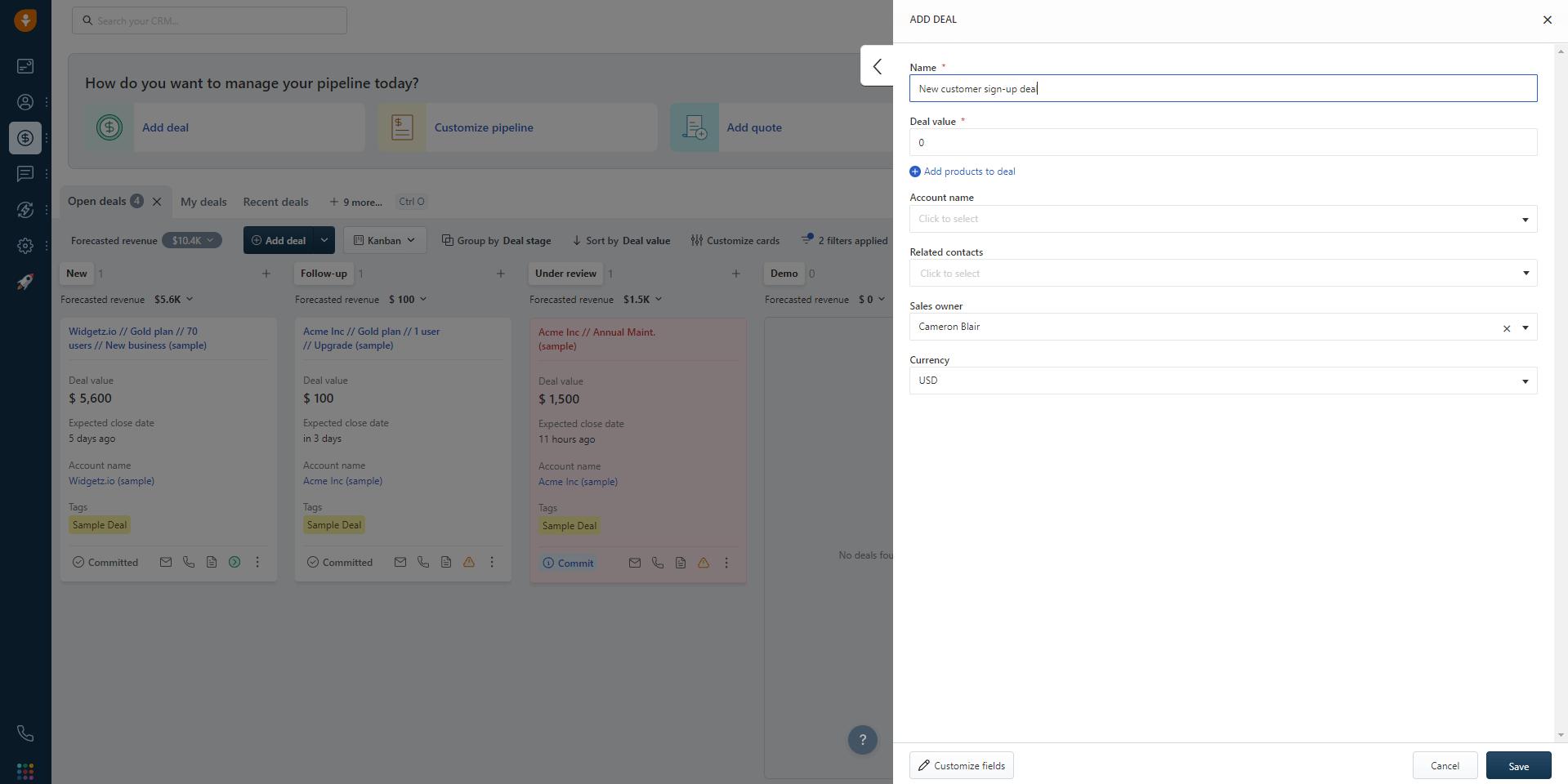
The Freshsales interface allows users to create and modify each deal. Image source: Duanetoops
Freshsales offers a number of features useful for marketing, such as multichannel engagement emails and SMS & WhatsApp support, web forms, and website visitor tracking. It really is a comprehensive 2-in-1 CRM, and has one up on HubSpot in this way, since HubSpot will make you purchase different packages for different focuses.
Freshsales CRM pricing vs HubSpot pricing
Freshsales CRM is made up of four plans, one of which is a generous free plan. Comparing free plan to free plan, Freshsales has more customer support options than HubSpot, but fewer integrations, data reporting features, email features, and contact management capabilities.
Freshsales’ first paid plan, Growth for $15 per user, per month, expands Freshsales to a fully featured marketing and sales CRM rolled into one, with a large offering of lead conversion and communication features. The Freshsales Pro plan ($39 per user, per month) has AI-powered deal insights and insights and a product catalog — and is much cheaper than HubSpot’s Professional plan ($90 per user, per month + $750 joining fee). Finally, the Freshsales Enterprise plan is $69 per user, per month, and adds audit logs and a dedicated account manager.
monday.com CRM features and overview
monday.com CRM is the best low-cost solution we have found, and an excellent choice for small businesses who just want something cheap, cheerful, and straightforward. Overall, our researchers award monday.com a 4.6/5 rating as a small business CRM, in large part due to how customizable it is and how much freedom you have with the software, which beats HubSpot’s 4.4/5 score in this category.
monday.com scores a perfect 5/5 for value for money as a Sales CRM, but only 3/5 for sales-specific features, compared to HubSpot’s score of 4/5 for its range of sales features. This is because monday.com does not include any lead capture or communication features aside from web forms.
HubSpot also scores higher (4.3/5) than monday.com (2.3/5) for sales CRM scalability. Although monday.com has some team communication features for organizational purposes (you can “@” team members on tasks and emails), its score is affected by the fact it has relatively few management features on its initial plans, with no individual target-setting function or internal knowledge base functionality unless you pay for the Enterprise plan.
One key advantage of monday.com is the level of customization afforded to users on this platform, as well as how easy it is to use: One Duanetoops reviewer noted that the auto-importing feature is a big time-saver “for when you’re switching from one software to another.” Many platforms require users to do a lot of menu-diving through the settings to really sculpt a CRM system to their specific needs, but monday.com lets you get underway with just a couple of mouse clicks.
Another unique thing about monday.com is that it will open a mini dashboard for each contact you have in your database, and you can add different widgets. This makes it great for sales teams.
Learn more about the smart software in our monday.com CRM review.

See more : Zendesk Sell Review – Is the Sales CRM Worth It?
The monday.com software includes a dashboard specific to leads. Image source: Duanetoops
However, monday.com’s CRM lacks customer support options and only really offers direct support via email, which will be a turn-off for teams who want to position their CRM at the center of their business operations. HubSpot, on the other hand, offers direct support via email, live chat, and phone on all its plans except HubSpot Free.
monday.com CRM pricing vs HubSpot pricing
All in all, monday.com has four CRM plans that are less expensive than HubSpot but also less comprehensive. For starters, monday.com no longer has a free plan, while HubSpot’s free offering is one of the best available.
monday.com’s Basic CRM plan is $10 per user, per month and adds a suite of data and reporting features for general CRM purposes. However, monday.com Basic offers significantly fewer useful sales functions than HubSpot’s starting plan ($9 per user, per month), with effectively no lead capture and communication features. Similarly, monday.com’s Standard ($14 per user, per month) and Pro plans ($27 per user, per month) are significantly cheaper than HubSpot’s Pro plan ($90 per user, per month + $750 joining fee). HubSpot offers a lot more team infrastructure and sales tools – but small teams might not need the extra features and will benefit from lower outgoing costs.
Pipedrive features and overview
Pipedrive CRM is a great HubSpot alternative for sales teams and offers a customizable sales pipeline, database management features such as list segmentation and duplicate-contact deletion, as well as lead capture add-ons including website visitor tracking, a website chatbot, and web forms.

Users can install new integrations from within the Pipedrive marketplace. Image source: Duanetoops
Pipedrive contains many features that sales teams would find helpful for organizing and communicating, including a team messenger function with which you can leave comments, a calendar, individual targets, and organizational KPIs. However, HubSpot has more team features and scores 4.2/5 for team infrastructure, whereas Pipedrive scores 3.9/5 in this area, in Duanetoops’s impartial testing.
Pipedrive’s reporting tools are easy to use, particularly for businesses that want to track analytics for revenue forecasts, deals won over time, and lead conversions. Creating and adding contacts “easy, and super speedy,” according to our research team.
If you’re thinking of switching from HubSpot to Pipedrive, you’ll be pleased to know that Pipedrive has multiple integrations you can use to expand your software offering. There are 83 lead generation integrative apps, for example – which is more than some providers offer for all of their different categories. Pipedrive is also rated equally as highly as HubSpot for customer support (both scoring 4.2/5), thanks to a 24/7 live support feature and a useful community forum and knowledge base.
Pipedrive pricing vs HubSpot pricing
Pipedrive has no free plan, starting instead with the Essentials plan ($14.90 per user, per month), followed by the Advanced plan ($24.90 per user, per month). Next is Pipedrive’s Professional plan ($49.90 per user, per month), which includes one-click calling, call tracking, the ability to project revenue and forecasts, and advanced custom reporting – and it’ll only cost you around half the price of HubSpot’s comparable Professional plan ($90 per user, per month + an onboarding fee of $750). However, once again, HubSpot does have a slightly better suite of Sales features, if you can afford the more expensive monthly costs.
Pipedrive has five plans in total, including the pricier Power ($64.90 per user, per month) and Enterprise ($99 per user, per month) plans. Check out our Pipedrive pricing guide for a more detailed cost breakdown.
Salesforce Service Cloud features and overview
Salesforce Service Cloud is a good customer service alternative to HubSpot. All in all, it’s one of the best customer service solutions on the market, but as is the case with many of Salesforce’s products, they’re very expensive which means they lose value-for-money marks, despite being excellent software programs. Overall, despite a poor pricing score (2.3/5), Salesforce scored 4.3/5 as a customer service solution.

Salesforce includes a KPI dashboard within its software interface. Image source: Duanetoops
Salesforce Service Cloud has a great range of team management features on all of its plans, such as an internal knowledge base, automated and manual ticket routing, user hierarchies, and more.
Salesforce also excels when it comes to security, with multi-factor authentication and IP restriction, which will come in particularly handy if you’re handling sensitive customer information. All these complex features might come with a downside, however: Our Duanetoops researchers say that the terminology and longer onboarding process “could create a learning curve.”
HubSpot does have a HubSpot Service Hub package geared towards customer service teams, but it doesn’t have as many customer service-focused features as Salesforce can offer. Overall, our Duanetoops research found HubSpot to be more user-friendly (3.9/5 vs 3.8/5), but not nearly as capable as Salesforce.
Salesforce pricing vs HubSpot pricing
HubSpot’s free version stacks up fairly well next to Salesforce’s Essentials plan ($25 per user, per month), but Essentials offers more customer service-specific tools, a calendar and custom reporting. Salesforce’s Service Cloud Professional plan ($80 per user per month) is more expensive than HubSpot’s Service Hub Starter plan ($18 per month for two users), but slightly cheaper for five users than HubSpot’s Service Hub Professional plan ($450 per month for 5 users).
Salesforce’s most expensive tier is the Unlimited plan ($330 per user, per month). Compared to HubSpot’s top tier, HubSpot will let you create a customer portal, forecasting tools, and helpdesk automation, but Salesforce has superior team infrastructure features for organizations and a huge library of integrations. Our detailed Salesforce pricing guide can tell you exactly which plan to go for.
Zendesk Sell features and overview
Zendesk Sell – the provider’s Sales CRM – didn’t score amazingly on our tests and was only awarded 3.4/5 overall, compared to HubSpot’s 4.3/5 score as a sales CRM.
Zendesk Sell didn’t score very well when it came to customer support (2.4/5) because it doesn’t have email or phone support (which HubSpot does), and it doesn’t have a wealth of features (2.8/5), with no custom reports or chart builders and few features that will help you capture leads such as website visitor tracking.

However, Zendesk is a sales tool that prioritizes user experience and keeps things simple – so it’s not entirely surprising that its features don’t quite match up with what HubSpot is offering. HubSpot scored 4/5 for features and 4.2/5 for team infrastructure – a score derived from the management and organization options a provider offers, such as a unified inbox and separate team inboxes – which Zendesk doesn’t offer on any plans.
There are good security options on all Zendesk plans, and there’s also a customizable sales pipeline, SMS support, and built-in video conferencing tools, as well as useful data-oriented tools such as sales forecasting features.
Zendesk caters very well as an alternative to HubSpot for those looking for a simple solution for beginners.
Zendesk pricing vs HubSpot pricing
Zendesk didn’t score as well for pricing (2.8/5) as HubSpot (3.7/5) mainly because it just doesn’t offer as many features for the cost — but Zendesk’s USP is providing a simple user experience that isn’t overwhelming.
See more : Zendesk vs Freshdesk – Price and Features Comparison 2023
HubSpot offers a free plan, whereas Zendesk’s lowest priced option, the Zendesk Team plan is available from $19 per user, per month. Head-to-head, HubSpot offers video conferencing and social media integrations on its free plan, whereas Zendesk’s Team plan doesn’t have this, as well as website visitor tracking and other lead capture tools, which Zendesk doesn’t have.
HubSpot’s first paid plan is $9 per user, per month, which is cheaper than both of Zendesk’s paid plans (including Growth at $55 per user, per month) by quite a bit. There’s not a whole lot between the two plans when it comes to organization and management features, but Zendesk has better security and data management options, while HubSpot has better lead capture and customer support features.
HubSpot’s Professional plan is actually cheaper than Zendesk’s third plan (also called the Professional plan), with HubSpot’s coming in at $90 per user, per month, while Zendesk’s is $115 per user, per month. However, HubSpot requires you to pay a $750 joining fee, and Zendesk does not.
HubSpot and Zendesk both offer enterprise-level plans, with Zendesk’s starting from $169 per user, per month. HubSpot is cheaper at $120 per user, per month but commands a $3,000 joining fee and a 10-user minimum.
Should You Choose HubSpot Anyway?
HubSpot is a respected name in the world of CRM, so opting for it remains a very valid choice.
HubSpot scores 4.2/5 for customer support, one of the highest customer support scores out of any provider we tested, while also scoring well for team infrastructure features (4.2/5), which helps businesses organize themselves. HubSpot, thanks to its multiplicity of plans for different purposes, scores 4.4/5 for customization, meaning you’ll be able to sculpt it to your business’s needs more easily than most HubSpot alternatives.
Once you get past the free tier, HubSpot is definitely one of the pricier providers out there, but you get what you pay for. The free version is certainly a HubSpot advantage — a free tier isn’t offered by any HubSpot alternatives other than Freshsales CRM. If your business has slimmer profit margins and doesn’t want to throw capital around, a free plan might be just what you need.
Free HubSpot Alternatives
Maybe you just aren’t willing to drop money every month for software that you might be able to get for free. Because of the difference CRM software makes in improving your customer retention, contact management, and lead-capturing rates (among other things), free CRM software is not common.
While there’s no shortage of paid HubSpot alternatives, outside of free trials which expire quickly, there’s only one complimentary software worth mentioning: Freshsales. Here’s how they compare.
| Freshsales Free Plan | Hubspot Free Plan |
|---|---|
| Maintain details of your leads, customers, deals | Management tools for contacts and deals |
| Capture leads through web forms | Track visitors on websites and set up web forms |
| Native VoIP capabilities (Make calls from within the CRM) | Native VoIP (make calls from within the CRM) – 15 mins a month |
| Create marketing email journeys | Customizable sales pipeline |
| Set up chatbots for your website | Integrations for Gmail, Outlook, and HubSpot Connect |
| Manage tasks within the CRM | Ticketing support |
| Unlimited users | Multi-factor authentication |
| Unlimited support | Unified inbox & Team messaging |
| Single Sign-On and MFA | Ad management |
| Reporting dashboards | |
| Email tracking and templates |
HubSpot’s free plan is surprisingly robust. It’s obviously not everything you’d get from a paid plan, but it could carry a small business for a while.
Methodology: How We Test HubSpot Alternatives
We take our impartial research and analysis seriously, so you can have complete confidence that we’re giving you the clearest, most useful recommendations.
After conducting an initial exploration to identify the most relevant, popular, and established tools in the market, we put them through their paces with hands-on testing to see their real strengths and weaknesses. In this case, we put 13 CRM systems to the test across 84 areas of investigation.
Based on years of market and user needs research, we’ve established a CRM testing methodology that scores each product in six main categories of investigation and 13 subcategories; this covers everything from the available features and scalability capacity to the product’s value for money, and much more.
Our main testing categories for CRM systems are:
Features: the functionalities and capabilities provided by the CRM software, such as contact management, lead and opportunity tracking, and task and activity management.
Help and Support: the resources and assistance available to users when they encounter issues or require guidance while using the CRM software.
Customisation: the ability to tailor the CRM software to suit the specific needs and processes of the organization, e.g. customizing fields, layouts, and workflows.
Scalability: the ability of the CRM software to accommodate the growth and changing needs of the organization, such as the capacity to handle a growing customer database.
Price: the cost associated with using the CRM software. It includes factors such as licensing fees, subscription plans, and additional charges for add-on modules or features.
Team Structure – Sales CRM: determining if a platform makes it easier to manage large sales teams, including team dashboards, team hierarchies, and team inboxes.
Usability – Small Business CRM: assessing the simplicity of the interface, the ease of navigating through menus and options, and the overall user experience.
When it comes to calculating a product’s final score, not all testing areas are weighted evenly, as we know some aspects matter more to our readers than others, which are merely “nice to have.” After hundreds of hours, our process is complete, and the results should ensure you can find the best solution for your needs.
At Duanetoops, we have a number of full time in-house researchers, who re-run this testing process regularly, to ensure our results remain reflective of the present day
Learn more about our research.
That’s a wrap on “ Best HubSpot Alternatives in 2023 | Feature & Pricing Comparison ” We hope you’ve found a trove of useful insights and fresh perspectives. Your opinions and ideas matter to us—join the conversation below and share your take! Hungry for more tech insights? Dive into our diverse collection of articles where innovation meets practicality. Discover More CRM Softwares.
Stay in the loop with the latest in AI and tech – your journey into the digital future continues at duanetoops.com.
#HubSpot #Alternatives #Feature #Pricing #Comparison
Source: https://duanetoops.com
Category: CRM
